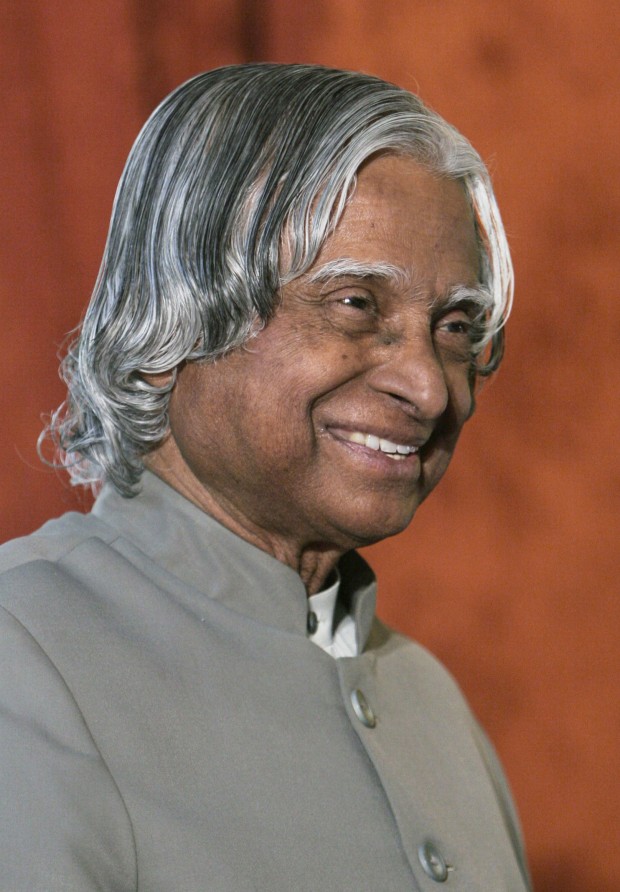Former Indian president Dr. Abdul Kalam passes away

This Jan. 19, 2008 file photo shows former Indian President Dr. A. P. J. Abdul Kalam at a function in Bangalore, India. Kalam has died at a hospital after collapsing while delivering a lecture in northeastern India.The president from 2002 until 2007 was known as the father of the country’s military missile program. He was 83. (AP Photo/Aijaz Rahi
Former Indian President Dr. A. P. J. Abdul Kalam passed away at a private hospital in Meghalaya on Monday evening, Press Trust of India reported.
According to NDTV, India’s 11th president had been admitted to the intensive care unit of a private hospital in Shillong, Meghalaya in critical condition. He had collapsed at the Indian Institute of Management-Shillong. While delivering a lecture to students of the B-school at Indian Institute of Management, Shillong, he had collapsed and was taken to a private hospital where he was admitted to the intensive care unit.
“He is in the Intensive Care Unit. We are examining him. We suspect that it could be cardiac arrest,” said John Sailo Ryntathiang, director of Bethany Hospital.
However, there was no immediate official word on the exact cause of his death.
Dr Kalam, 83, had served as the 11th President on India from 2002 to 2007. The Indian government announced seven days mourning for him.
He is expected to be buried in his native Rameswaram, a coastal town in South Indian state of Tamil Nadu.
Indian premier Narendra Modi noted that Kalam’s death was a great loss to the nation.
He tweeted: “India mourns the loss of a great scientist, a wonderful President & above all an inspiring individual. RIP Dr. APJ Abdul Kalam. Dr. Kalam…my mind is filled with so many memories, so many interactions with him. Always marveled at his intellect, learnt so much from him. Dr. Kalam enjoyed being with people; people & youngsters adored him. He loved students & spent his final moments among them.”
Abdul Kalam was an acclaimed nuclear scientist and author, and was known as the “people’s president” during his time in office. He continued to reach out to young people with his scientific lectures after leaving office.
Home minister Rajnath Singh described him as “an inspiration to an entire generation” in a post on Twitter.
Born to a poor family of boatman on October 15, 1931, Kalam sold newspapers as a child to help his family financially.
Later, he worked his way to become a top scientist at India’s defense research organization, where he worked for four decades helping to develop the country’s home grown weapon’s program, earning him the moniker “India’s missile man”.
He also played an important role in India’s nuclear weapons tests in 1998.
After his presidential term, Kalam regularly delivered lectures at top Indian universities. He also published a best seller autobiography entitled “Wings of fire” in 1999.
Pakistani Prime Minister Nawaz Sharif also expressed his condolences on Monday on the demise of former Indian president Dr. Kalam.



















































